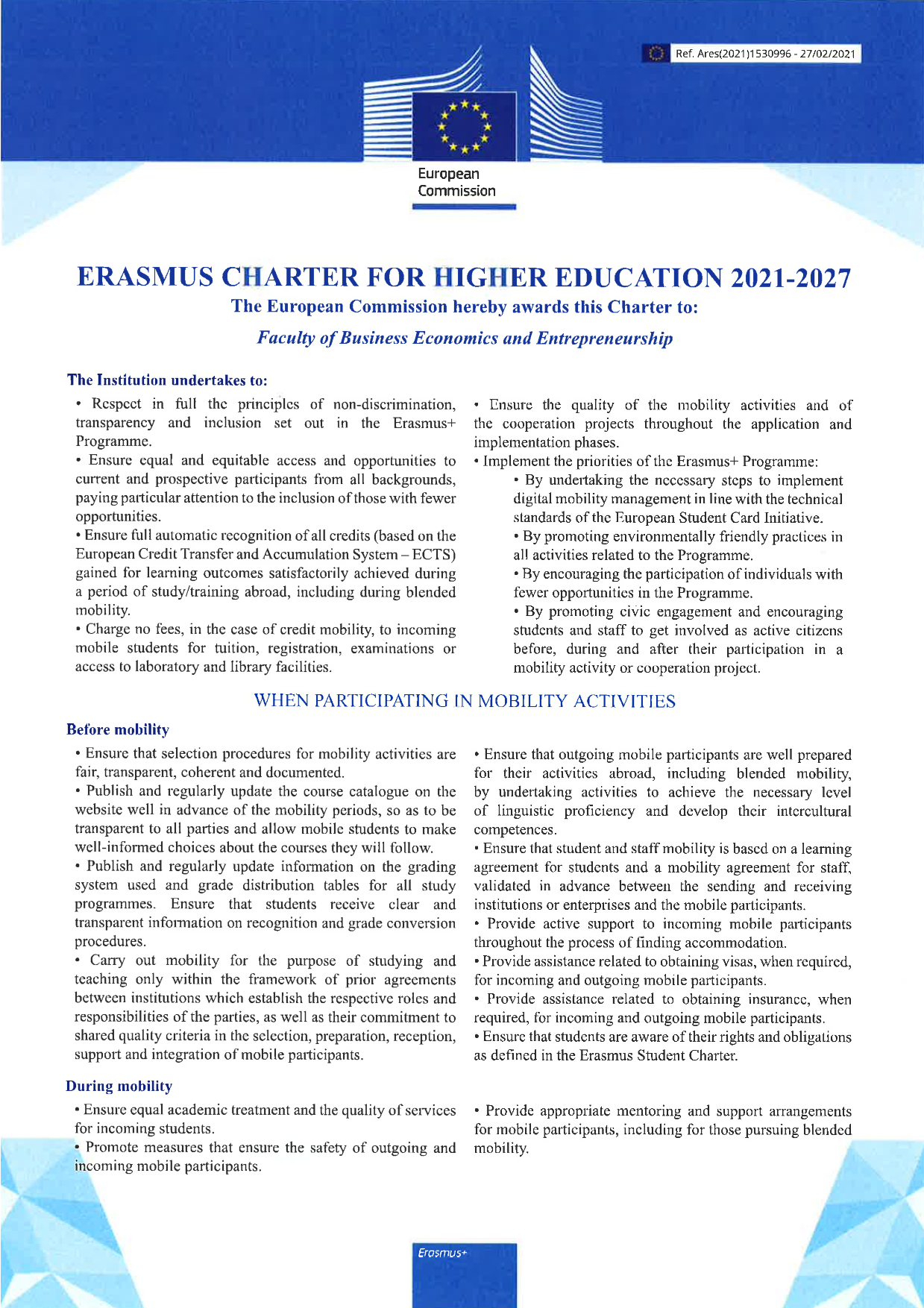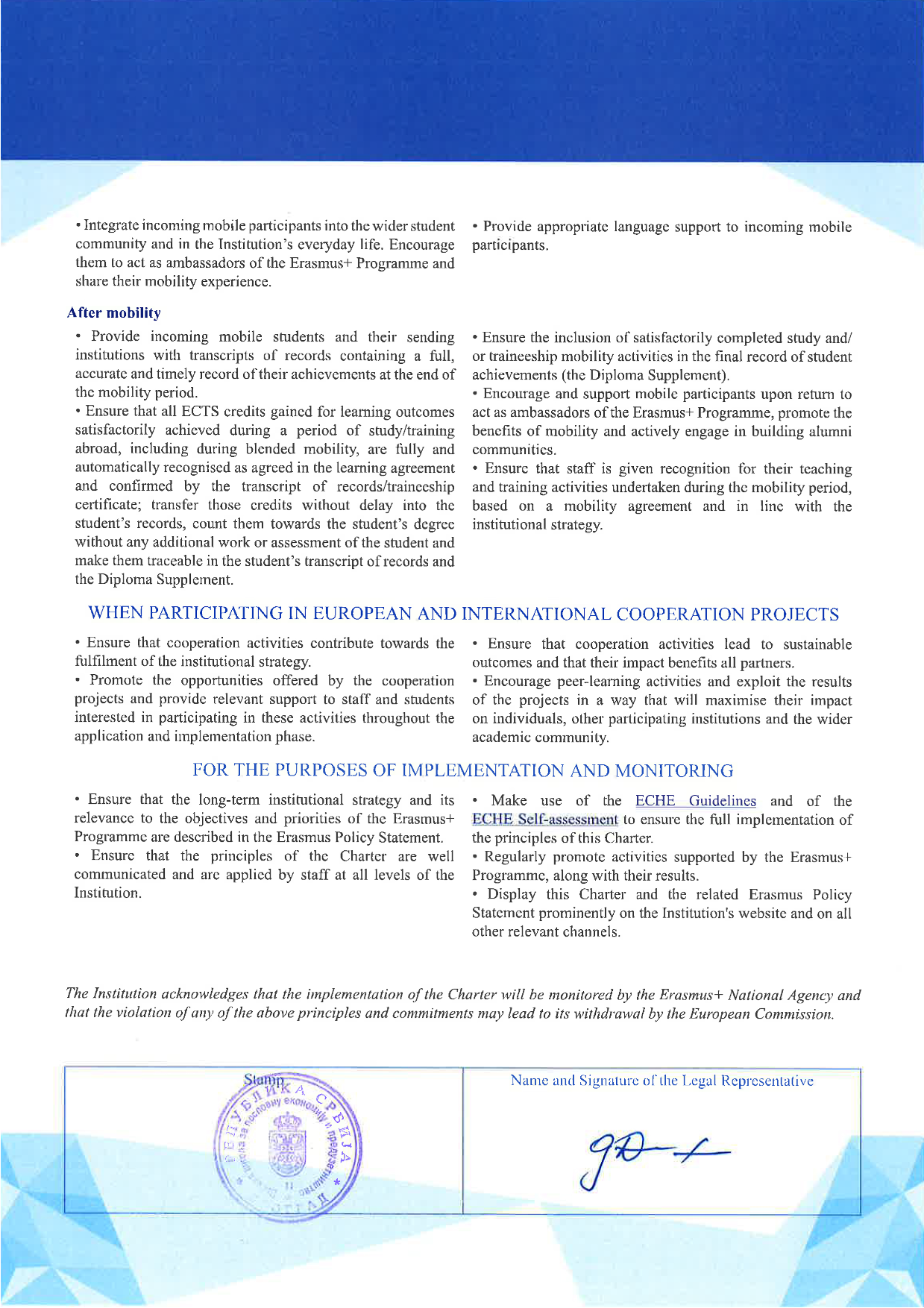Erasmus+ is the new EU programme for Education, Training, Youth and Sport for the period from 2014 to 2020, which aims at advancing skills and employability, as well as updating Education, Training and Youth work. It will provide opportunities for studying, training and establishing cooperation among higher education institutions from programme countries and partner countries.
Promotion and implementation of Erasmus+ programme in Serbia, as far as education parts are concerned, is delegated to the National Erasmus+ office in Serbia. The aims of the Erasmus+ programme in the field of education and training are:
- To enhance and support the development of all levels of education and training
- To strengthen the links among formal and informal education and learning
- To enhance cooperation between education and labour market
- To create additional values for the European education and European dimension in education
- To support cooperation among participating countries in defining education policies
Erasmus+ programme also focuses on strengthening the potential of Youth for active participation in civil society, development of leadership skills, solidarity and understanding among cultures.
Erasmus+ promotes recognition of qualifications in education, open access to education materials, documents and media created through funded projects, an international dimension of activity, multilingualism, equity and inclusion.
The most significant change in 2019 for higher education institutions in Serbia is the possession of the Erasmus Charter for Higher Education as a prerequisite for any participation in the programme. A new reference is that Serbia is in the group of Programme Countries, together with EU members, including Island, Liechtenstein, Norway, Turkey and Macedonia. These countries can participate fully in all parts of the programme. Organizations from Serbia can be partners in all types of projects to, organizations and institutions from other countries that submit applications to their national agencies, which significantly increased the possibilities for financing projects.
Erasmus Charter for Higher Education – ECHE
The Erasmus Charter for Higher Education is a document on the basis of which the European Commission awards accreditation to higher education institutions from programme countries which enabling them to compete and participate in Erasmus + projects. It contains the basic principles higher education institutions must respect in order to be able to participate in the Programme. The Erasmus Charter provides a basic framework for the quality of European and international cooperation.
Through the Erasmus Charter for Higher Education, the higher education institution is obliged: to fully respect the principles of non-discrimination prescribed by the Programme and to ensure equal access and opportunities for all participants in mobility; to ensure full recognition of the points earned during student mobility; regarding the mobility, to liberate students of any fees for tuition, enrollment, exams, access to laboratories and libraries, etc.
The Erasmus Charter also defines the terms of participation in periods prior to mobility, during mobility and after mobility. The monitoring of the implementation of the Charter principles is carried out by the European Commission in cooperation with national agencies. Higher education institutions from programme countries are obliged to have the Erasmus Charter for higher education so that they can participate in mobility and cooperation projects, while higher education institutions from partner countries, under the principles of the Erasmus Charter, commit themselves to signing an interinstitutional agreement with higher education institutions from the programme country.


ERASMUS POLICY STATEMENT
Application No 273130-EPP-1-2020-1-RS-EPPKA1-ECHE
PIC 907267579
Erasmus Code RS BELGRAD18

